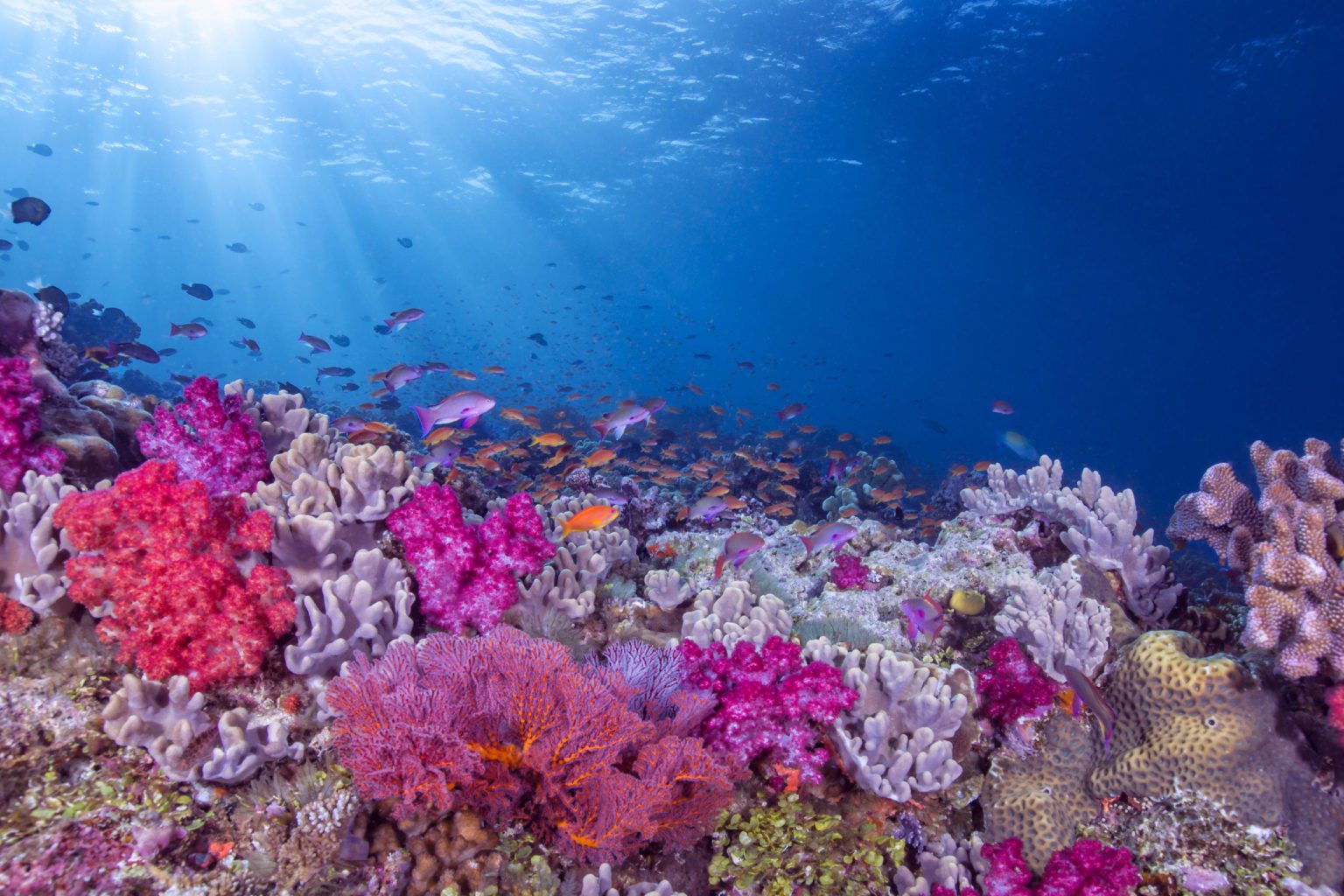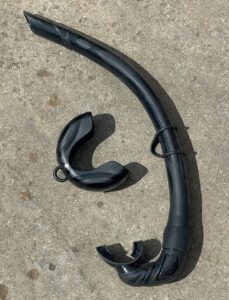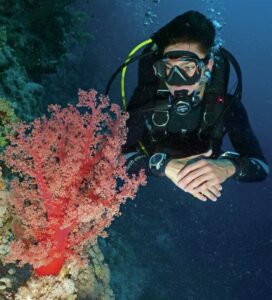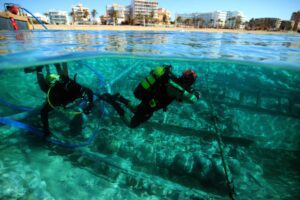Looking at our planet from outer space, the first signs of life are coral reefs. Once these incredible structures were seen simply as a hazard by those who explored the oceans. Now we know that, like the rainforests, they are vital to our survival.
We’ve lost 14 percent of the world’s coral reefs in the last decade or more. This decline is mostly attributed to large-scale coral bleaching events, which first captured our attention in 1998 and since then have become a regular occurance. Climate change leads to warming ocean temperatures, which can trigger bleaching and ultimately impact the health of coral reefs.
While climate change doesn’t affect all reefs uniformly, experts warn that it’s an existential threat. Climate change must be addressed for any interventions to work in the long term. Other interventions include addressing human and land waste, and the overfishing of waters globally.
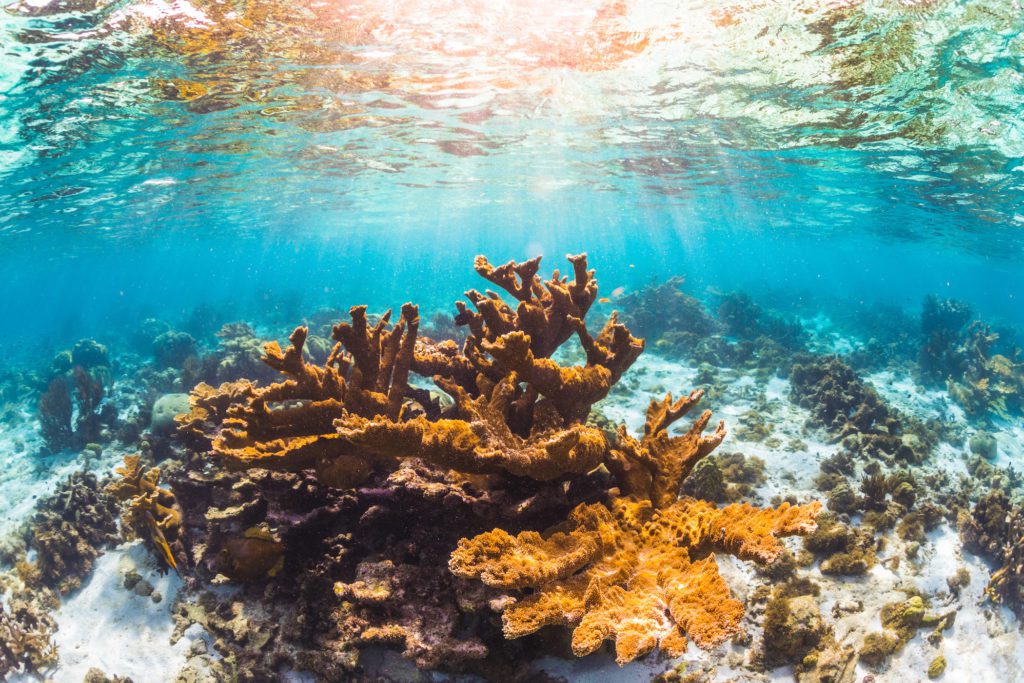
But despite these upsetting statistics, the recent studies also validated corals’ resilience and underscored the importance of acting quickly to save coral reefs. There are times and places where corals have recovered. In fact, coral reefs have the ability to recover when the conditions permit. This can include minimizing water pollution or addressing overfishing, in order to create more optimal conditions for reefs to adapt to climate change. Good news… Some areas in the Red Sea with high coral cover and diversity have already shown signs of natural resistance to increasing temperatures.
Experts say reef restoration technologies and practices, such as breeding and replanting efforts, are important. However, they should not be viewed as a ‘silver bullet' to the coral reef degradation as the climate continues to warm. We all have a part to play.
Dive training organisation PADI urges everyone to ‘do their bit' as we celebrate World Reef Day on 1 June, and here are some things you can do to protect coral reefs:
Recycle and dispose of trash properly. And when you can, limit your use of single-use plastic. Reduce, reuse, recycle… and make a coral reef happy. Marine debris can be harmful to coral reefs. Recycle your trash at home and on the go. When disposing of trash, do it properly in bins, to avoid trash being blown or washed away into waterways and oceans. On beaches, make sure you leave no trash behind, and never throw or leave any cigarette butts in the sand. This helps keep trash out of the oceans and also out of landfills where it can have an adverse impact on the water quality of our rivers and oceans.
Clean up your act when it comes to transportation. Use environmentally-friendly modes of transportation. Instead of driving a car, try to walk, bike, or use public transport (like buses and trains) more often. If you are planning to buy a car, choose a fuel-efficient vehicle like a hybrid or electric car. Using these cleaner transportation methods can help reduce the amount of greenhouse gasses that are emitted into the atmosphere. These emissions contribute to ocean acidification and increased ocean temperature. More acidic ocean waters impede coral growth and warmer waters cause coral bleaching.
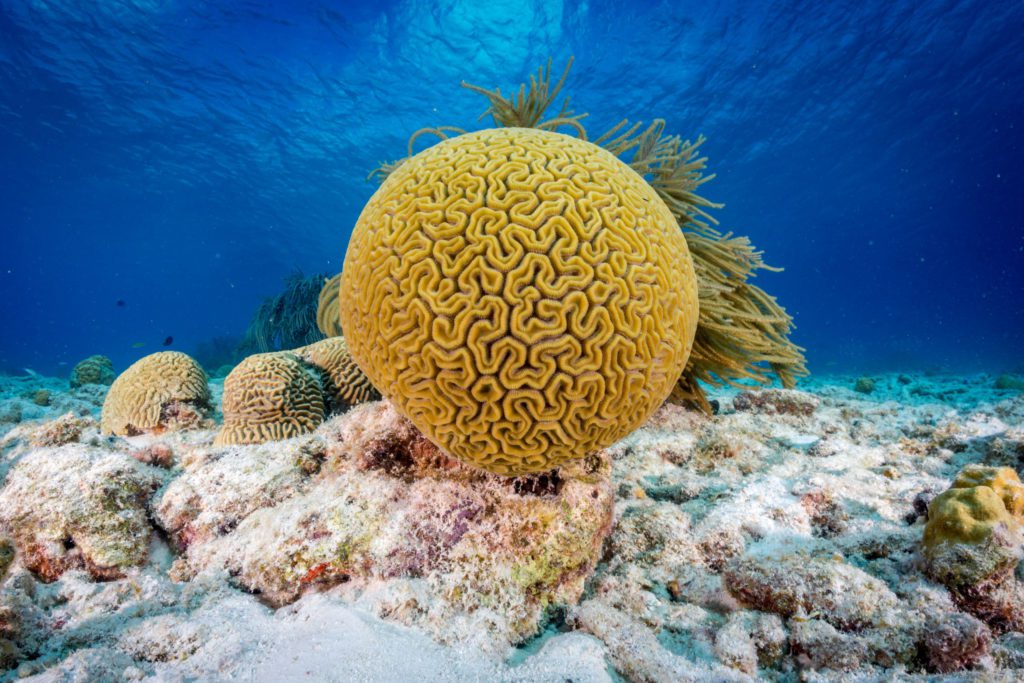
Reduce stormwater runoff. Reducing stormwater runoff can help prevent water pollution, reduce flooding, and protect our water resources. Homeowners can install water catchments or rain gardens and use rain barrels to collect rainwater that would otherwise be diverted to storm drain.
Save energy at home and at work. You can save energy at home by turning off lights and electronic devices when not using them and opting to buy energy-efficient appliances such as Energy Star-certified appliances. At work, try to turn the lights and your computer off when you leave.
Be a wastewater crusader! Make sure that sewage from your boat and home is correctly treated. Excess nutrients in wastewater can negatively impact coral reef ecosystems. Land-based pollution, mostly in the form of human effluent and agrochemicals, affects roughly two-thirds of the world’s coral reefs and requires governments and scientists to work together to improve waste management globally. Six in 10 individuals on the planet currently don’t have access to proper sanitation.
Conserve water. The less water you use, the less runoff and wastewater eventually find their ways back into the oceans.
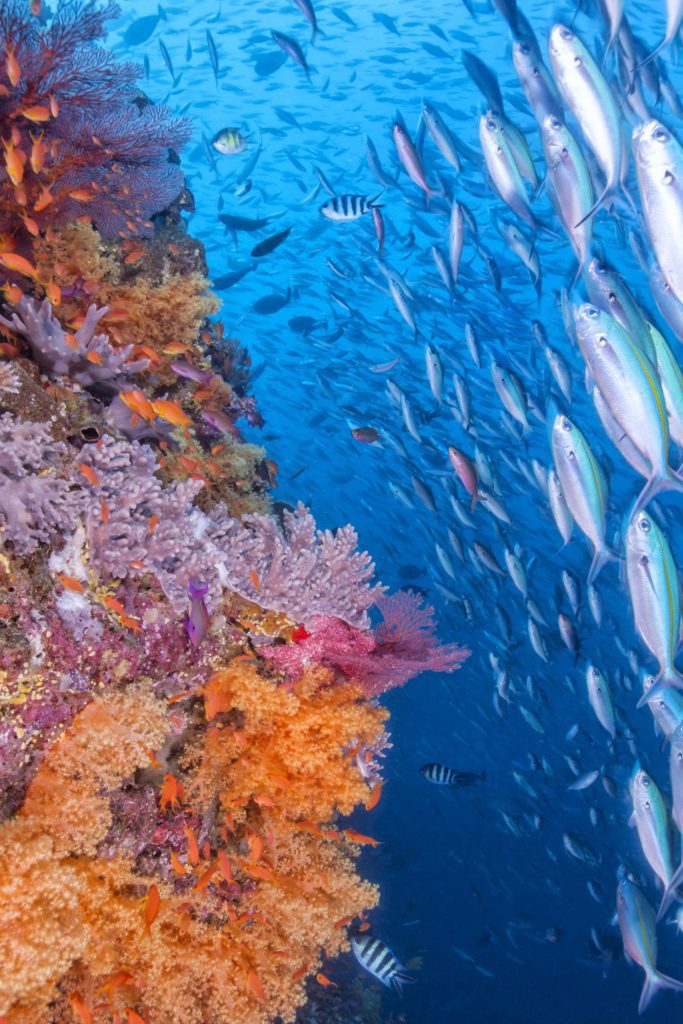
Become a volunteer monitor! Participate in community coral reef monitoring programs. If you do not live near a coast, get involved in protecting your watershed.
Report dumping or other illegal activities. Help be the eyes and ears of the reef! Your involvement can make a big difference.
Stay informed. Find out about existing and proposed laws, programs, and projects that could affect the world’s coral reefs. Many websites provide information about coral reefs and what you can do to become involved.
Spread the word. Remember your own excitement at learning the value and importance of coral reef ecosystems. Sharing this excitement gets everyone involved.
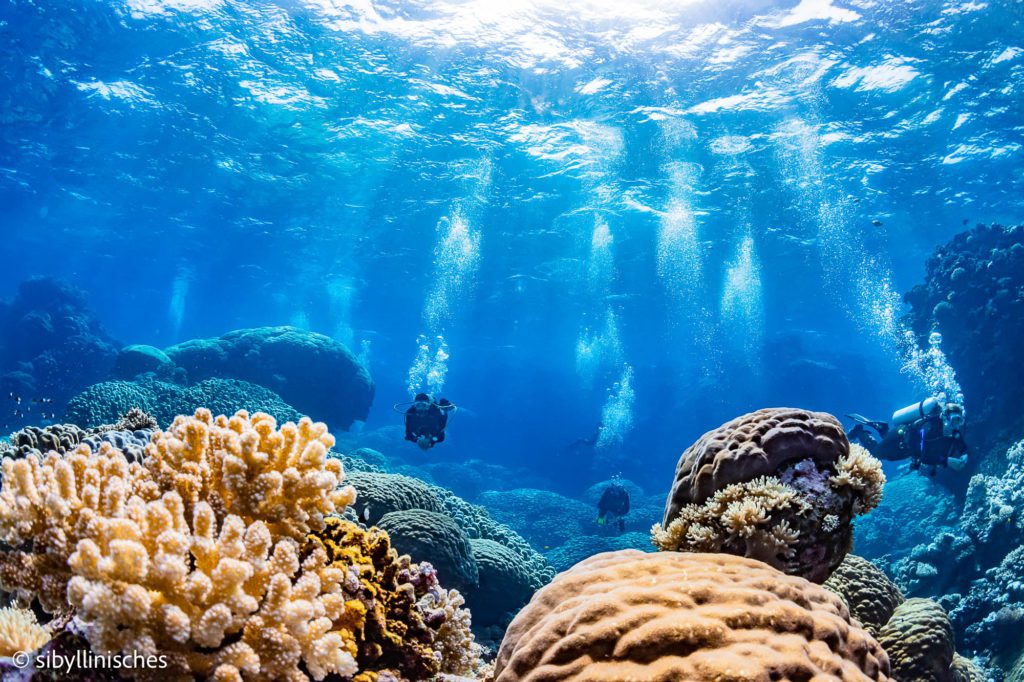
Support organizations that protect coral reefs. Many groups have coral reef programs, and your support will make a big difference.
Don’t use chemically enhanced pesticides and fertilizers. Although you may live thousands of miles from a coral reef ecosystem, these products end up in the watershed — the area that drains to a common waterway, such as a stream, lake, estuary, wetland, and ultimately, the ocean.
The overuse of fertilizers on lawns harm water quality because nutrients (nitrogen and phosphorus) from the fertilizer are washed into waterways and eventually end up in oceans. These nutrients pollute the water and can harm coral reefs.
Choose the fish you consume wisely. If you choose to eat fish, ensure they are caught sustainably and are on the ‘green' list of fish to eat in your local area. You can easily download a card to carry in your wallet in your region. Overfishing continues to be one of the major threats to reefs, as many reefs depend on fish and other marine creatures to survive. As of 2017, only 65% of global fish stocks were at sustainable levels.
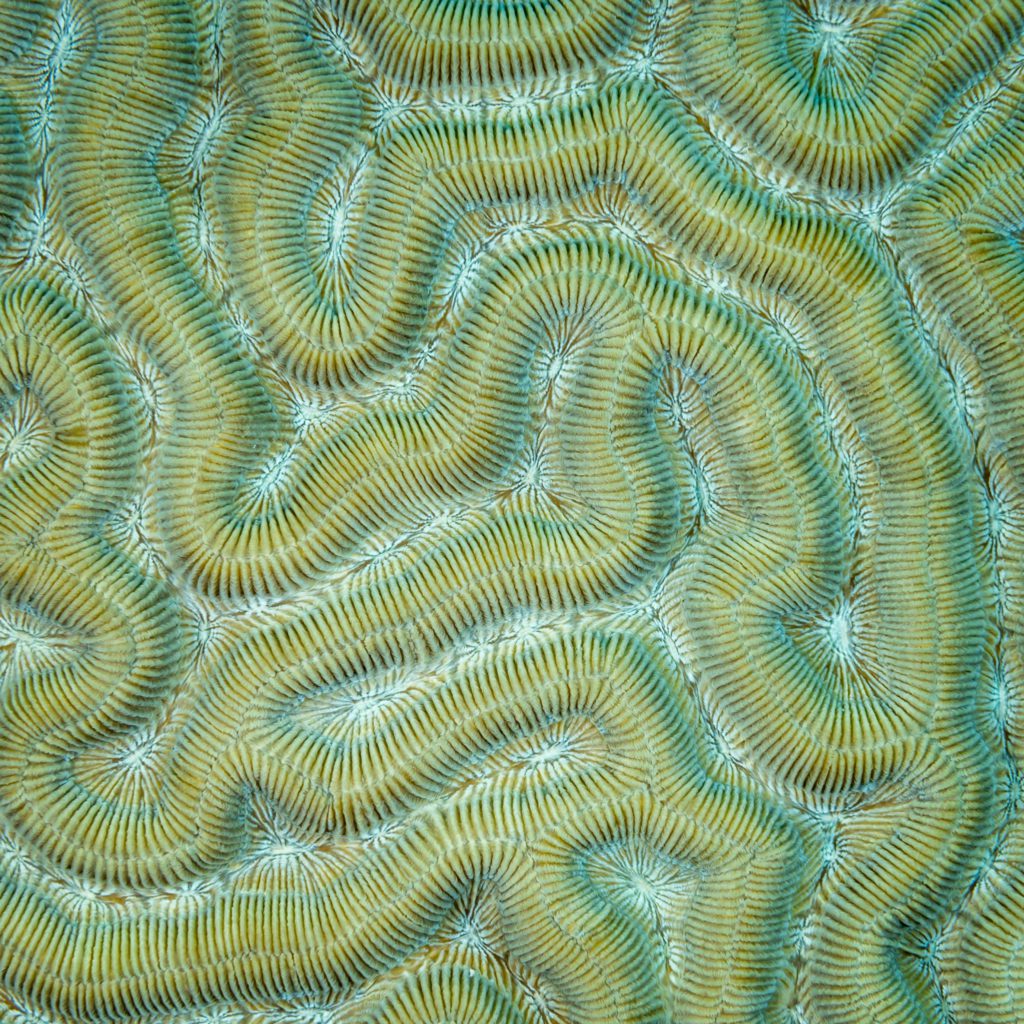
Volunteer for a Dive Against Debris. You don’t live near a coral reef? Then consider visiting a coral reef on your next vacation. Spend an afternoon enjoying the beauty of one of the world’s treasures while helping to preserve it for future generations. Want to organize your own Dive Against Debris?
If you dive, don’t touch! Take only pictures and leave only bubbles. Keep your fins, gear, and hands away from the reef, as this contact can hurt you and will damage the delicate coral animals. Maintain excellent buoyancy control and stay off the bottom because disturbed sediments can smother the corals.
Educate yourself about coral reefs and the creatures they support. How many different species live in reefs? What new medicines have been developed from reef organisms? Participate in training or educational programs that focus on reef ecology such as the PADI Project AWARE Specialty. When you further your own education, you can help others understand the fragility and value of the world’s coral reefs.
Participate in the Great Annual Fish Count. What better way to enjoy your vacation than snorkeling or diving in America’s coral reefs? The Fish Count helps scientists better understand coral reef fish populations.
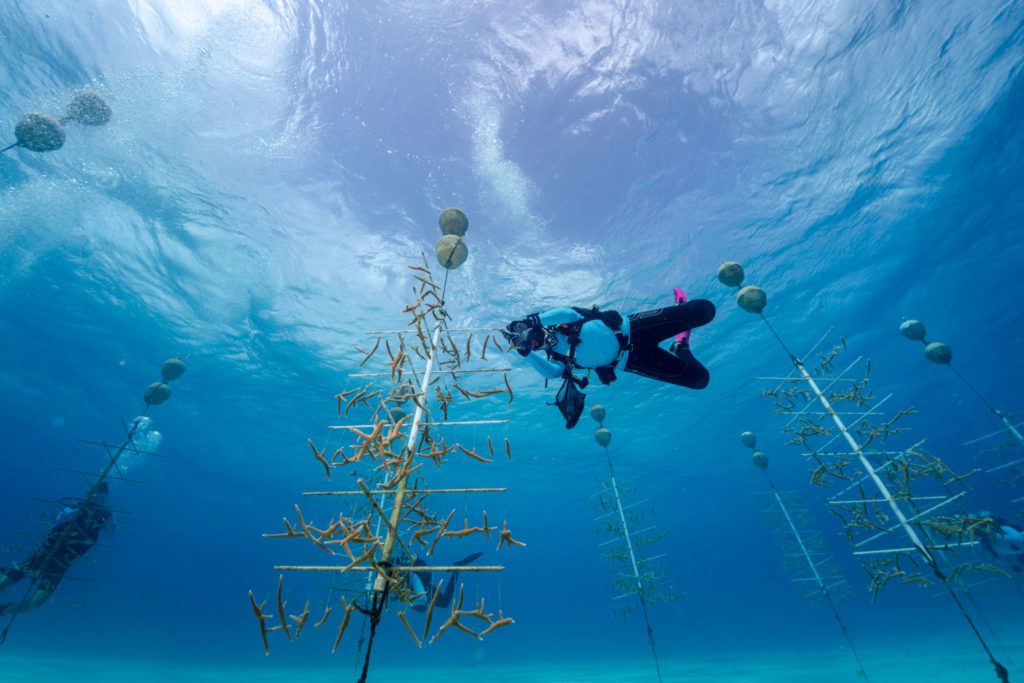
Respect local guidelines when you visit a reef. Help keep coral reefs healthy by respecting local customs, recommendations, and regulations. Ask local authorities or your dive shop how to be a reef-friendly tourist.
Support reef-friendly businesses. Ask what your dive shop, boating store, tour operator, hotel and other coastal businesses are doing to save coral reefs. This is especially important in coastal areas with reefs. Let them know you are an informed consumer and care about reefs.
Hire local guides when visiting coral reef ecosystems. This will help you learn about local resources, and protect the future of the reef by supporting the local economy.
Don’t anchor on the reef. If you are boating near a coral reef, use mooring buoy systems when they are available.
Photo credit: Fiji Tourism, Andrea Rothlisberger, Markus Roth, and Sibylie Malinke
